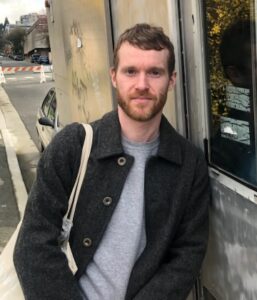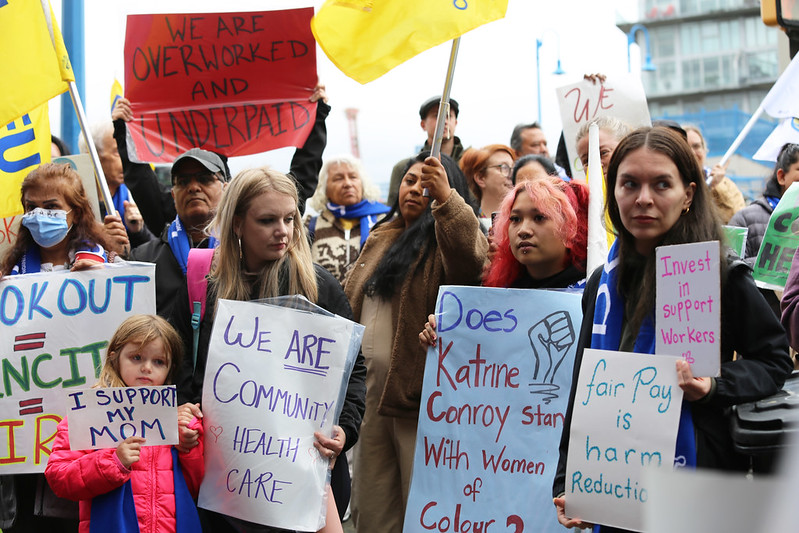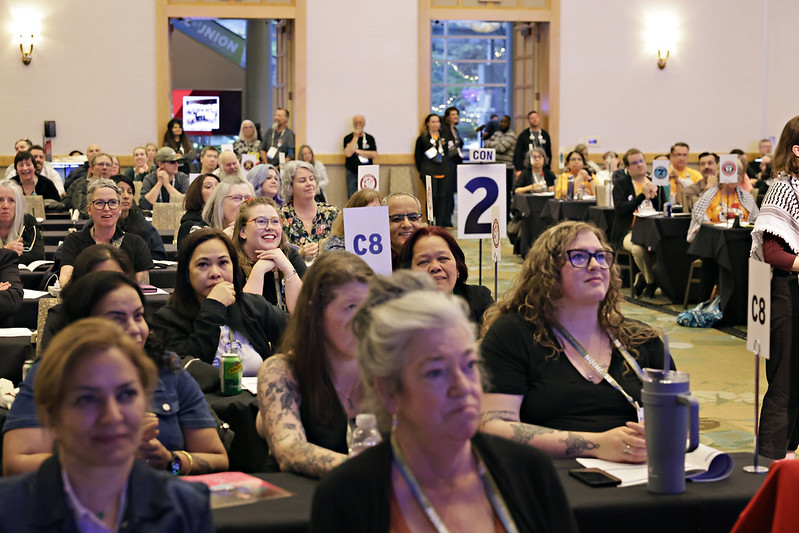by Sumaiya Tufail – November 1st, 2024

What is the BCGEU and what work are you doing?
The BC General Employees’ Union (BCGEU) is a public and private sector labor union with over 90,000 members across the province, covering a wide range of sectors. Our membership spans numerous public services, including community social services, community health, and retail, with roles as diverse as library employees, commercial vehicle safety staff, and wildfire fighters.
How did you get involved?
Before joining the BCGEU a year ago, I worked as a labor lawyer, supporting unions in various sectors across the province. Earlier in my career, I was involved in tenant organizing and eviction defense. At BCGEU, I apply some of my legal background but also conduct research on our membership and broader developments in labor studies, economics, and housing. I appreciate the variety in my role and the opportunity to connect with members across different sectors in our highly diverse union.
Why does precarity matter right now and for the future?

Rising precarity is reshaping not only our members’ daily working conditions but also our approach to organizing. Our core mission is to address precarity by protecting and expanding access to stable jobs and maintaining well-funded public services that are vital for everyone. This includes advocating for fair funding, reducing workload stress, and addressing high turnover rates—both through advocacy and at the bargaining table.
In our government sector, for example, many members are on the front lines, feeling the strain of increased social precarity in society. Our members working in community social services, health services, supportive housing, and libraries are experiencing heightened workplace pressures due to the growing precarity in British Columbia. Similarly, environmental precarity is intensifying demands on members who are tasked with extinguishing wildfires and rebuilding infrastructure impacted by climate change.
From an organizing perspective, we are focused on expanding our reach to new worker groups, especially in community social services, where jobs are often more precarious.
What particular project are you excited about?
One project I’m involved in is BCGEU’s Affordable BC Campaign, launched in 2017 with a focus on public housing, vacancy control, land value capture, and inclusionary zoning. Our leadership saw that gains made at the bargaining table were increasingly undermined by skyrocketing housing costs. Thankfully, housing has since become a labor movement priority.
(Land Value Capture (LVC) Explained): When the government improves city infrastructure, surrounding properties increase in value—a “windfall gain” in economic terms. An LVC tax captures these gains to fund public initiatives. LVC not only discourages real estate speculation but also generates revenue for affordable housing.
A main focus of this campaign is advocating for direct funding and construction of genuinely affordable housing rather than relying on public subsidies for private developments, which are often ineffective and wasteful. This requires confronting entrenched interests that benefit from the ongoing crisis and the dominant narrative that market supply alone can solve housing issues.

In addition to advocating for a more rational and humane approach to housing, BCGEU is also making its own contributions. Currently, we’re working on our first housing project, which will set a precedent for unions in direct affordable housing provision. Historically, labor unions played a significant role in establishing early public housing, a model later adopted by governments in Canada and the US post-WWII. We hope to see these public and labor/community housing models re-emerge after over 30 years of unsuccessful market-driven experiments.
Our project near the Royal Oak Skytrain station will serve as a new BCGEU area office and include two residential rental buildings with 292 units, half of which will be rented at 20% below the neighborhood median.
